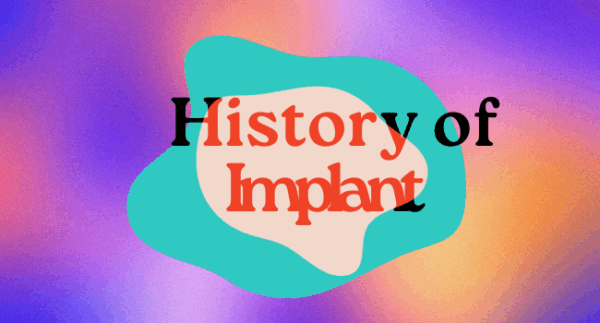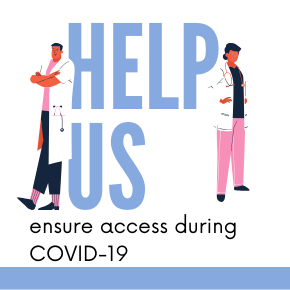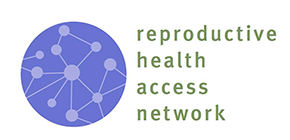Aug 14

Help Us Protect Access to Sexual and Reproductive Health Care Today!
 This Mother’s Day, May 10th, marked the start of National Women’s Health Week, an annual celebration of the ways in which women can focus on making their mental and physical wellness a priority. Now more than ever the need for people of all genders to do our part in sustaining a healthy lifestyle is clear– not just for our own wellbeing but also for that of everyone else around us.
This Mother’s Day, May 10th, marked the start of National Women’s Health Week, an annual celebration of the ways in which women can focus on making their mental and physical wellness a priority. Now more than ever the need for people of all genders to do our part in sustaining a healthy lifestyle is clear– not just for our own wellbeing but also for that of everyone else around us.
The COVID-19 pandemic has highlighted the many ways in which healthy habits, like quitting smoking and washing hands often, make us less vulnerable to illness. It has also placed a magnifying glass on how many aspects of our health fall beyond our control. While it may be easy for many to integrate exercise and wellness practices like yoga and meditation into their daily routines, other important parts of health for women, trans, and gender-nonconforming folks are being further restricted by the politicization of our bodies and the glaring inequality in access people across gender, race, and socioeconomic spectrums face during the outbreak.
As we reflect on the ways people of all genders prioritize their health, it is also important to acknowledge factors– like location, race, and class– that influence health, especially in a state of the pandemic. For example, some state governments have taken steps to ban abortion altogether during the pandemic, dismissing it as non-essential and restricting remote treatment options. In these places, patients are forced to travel further, make multiple in-person visits, and endure mandatory waiting periods to access the care they need. This puts patients, clinicians, and their loved ones at an increased risk of exposure, and doesn’t take into account the cost of travel, childcare, and missed work for those seeking care.
In other states, positive steps have been taken to bolster access in new ways. For example, an increase in access to telemedicine for abortion, miscarriage, and contraception care is allowing patients in many places to receive the care they need from the safety of their homes. As an organization working to support reproductive health year-round, we at RHAP look forward to reflecting on how we can continue to take steps like these during the coronavirus pandemic and beyond to ensure every person has access to safe care, even in times of crisis.
 Our world has changed drastically in a matter of months. We have all had to adjust our lives in so many ways in reaction to this global pandemic. Never did we imagine that the clinicians we work with would be on the frontlines fighting a global pandemic, or that accessing basic reproductive health care could put someone’s health at risk. Primary care is undergoing a huge shift right now as, more than ever, health care is being provided remotely by phone or computer.
Our world has changed drastically in a matter of months. We have all had to adjust our lives in so many ways in reaction to this global pandemic. Never did we imagine that the clinicians we work with would be on the frontlines fighting a global pandemic, or that accessing basic reproductive health care could put someone’s health at risk. Primary care is undergoing a huge shift right now as, more than ever, health care is being provided remotely by phone or computer.
RHAP is shifting gears, adapting to provide primary care clinicians with the tools, resources, training, and support they need to ensure safe and timely access to abortion, contraception, and miscarriage care during this pandemic. We have created a special section on our website with updated tools and resources tailored to “telehealth” services. We’ve taken our clinical education 100% online and our state-based Network meetings now take place via Zoom.
We didn’t plan for this and need your help now to make sure that we have the resources to keep responding to the pandemic. We are launching a campaign to raise $25,000 this spring to support our emergency COVID-19 response. Here’s what we will do with the funds we raise:
We understand that this is a difficult time for everyone. Our attention is split in many different directions and we are all concerned about the health and wellbeing of our loved ones and communities. We hope that you consider RHAP to be a part of your community and would greatly appreciate your support at this critical time.
Here’s how you can help:
Please make a generous gift and help us reach our goal of $25,000. Your support will help us continue to provide our primary care clinicians with the resources, community, and tools to be able to advocate for this care, especially now.
 Laura Riker is the National Organizer at the Reproductive Health Access Project. She oversees the Reproductive Health Access Network.
Laura Riker is the National Organizer at the Reproductive Health Access Project. She oversees the Reproductive Health Access Network.
The Reproductive Health Access Network is a community of clinicians from all over the United States, and while we have always connected with our Network members virtually through newsletters and listservs, the heart of our work has been in bringing clinicians together in person. These in-person gatherings serve as touchstones for our Network members, whose daily lives are so busy that they can feel disconnected from other primary care clinicians providing reproductive health care in similar settings. These meetings also serve as opportunities for training, strategizing, and reconnecting with old friends and co-conspirators who fight alongside each other to expand and protect access to reproductive health care, despite mounting opposition. Like many of our Network members, the RHAP Network team also feels reinvigorated and revitalized when we are able to attend Cluster meetings, or go to conferences and meet people in person.
COVID-19 has presented the Network staff with a unique set of new challenges. The pandemic has driven us into our homes, canceling conferences and travel, while our clinicians are on the front lines – working in the hospital, providing telemedicine for 8-10 hours a day, continuing to go into the clinic to provide abortion care and other reproductive health services, and so much more. We’re trying to be mindful of the balance between asking too much of our Network members and giving them opportunities to continue the reproductive health care work that they feel so connected to. As a team, we’ve had to reevaluate and reimagine how we can continue our work to expand access to reproductive health care and support clinicians without the critical element of face-to-face gatherings.
We know that for many Network members, connecting with like-minded peers and offering spaces for support is what helps them stay motivated. With threats to abortion access such as Executive Orders banning abortion procedures, the challenges of telemedicine abortion, and the June Medical Services v. Gee decision looming, it is more critical than ever that clinicians come together as a community to remain inspired and motivated. In mid-March, we started hosting regular virtual “RHAPpy Hours” for our Network members. These open-ended spaces now happen at least once a week, and all Network members are welcome to call in. On a personal note, participating in these national calls has provided me with a new level of insight into the diverse range of experiences, workplace settings, and backgrounds that our Network members have.
Living in New York City has made it harder for me to envision what life is like for people in other states right now. More than anything, this crisis has underscored for me the critical importance of the Cluster model and on-the-ground organizing. We’ve always taken direction from those in the Clusters to inform our programming, and as such, every Cluster is a truly unique community unto its own, with goals and priorities that fit the needs of the Cluster members. This is now truer than ever, as the experience of COVID-19 varies so much depending on where people are. One of the silver linings of being fully virtual is that I now have the opportunity to participate in Cluster meetings that were previously inaccessible – I’ve recently “attended” my very first Idaho, Montana, Southern California, and Oregon Cluster meetings. My appreciation for the work that our clinicians are doing has only grown, whether that be treating COVID patients in New York City or Chicago, providing abortion services in Arizona to patients driving from Texas, offering the necessary primary care services that patients continue to need despite a pandemic, or any number of the different types of care that our Network members provide their patients with every single day.
Seeing for ourselves the strength of our Cluster leaders and the communities that they foster has been a new source of inspiration and learning that has helped inform how we think about the Network moving forward. It may be a long time until we can all come together in person, but in so many ways, this pandemic has forced us to reshape how we provide each other with the human connection and support that is now more necessary than ever.
Your gift allows us to train and support health care providers across the United States so they can offer patients compassionate and comprehensive care.
Aug 14
